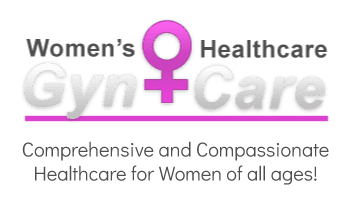High-Risk Pregnancies Specialist
GYN-CARE Women's Healthcare Center
Women's Health Center located in Atlanta, GA
In a high-risk pregnancy, there’s an increased risk of health issues for both mom and baby. Although high-risk pregnancies can be worrying, getting support and dedicated care from a highly experienced OB/GYN like Eric Brown, MD, at Gyn-Care in the Atlantic Station area of Atlanta can make all the difference. To learn more, book your appointment online or over the phone today.
High-Risk Pregnancies Q & A
How does age impact pregnancy risk?
Teenagers who are pregnant have an increased risk of anemia, hypertension, and early labor. Teenagers may also be less likely to have consistent prenatal care, which can increase the potential for problems for both mom and baby.
Women over age 35 also have an increased risk of pregnancy complications. This risk is highest for women who are having their first child after age 35, but any pregnancy after age 35 can come with risks, including hypertension, ectopic pregnancy, and long labor.
If you’re a teenager or over age 35, you may need more frequent prenatal visits to ensure you and your baby are healthy.
Which prior health conditions can make pregnancy high risk?
Pre-existing health conditions can lead to a high-risk pregnancy. These include:
- Hypertension
- Liver problems
- Respiratory system issues
- Heart problems
- Diabetes
- High blood pressure
Many other serious medical issues can lead to a high-risk pregnancy as well. These issues may mean that you need more frequent prenatal appointments, but you can still have a healthy pregnancy.
What kind of complications make a pregnancy high risk?
Moms of any age and in any state of health can potentially develop new health conditions during pregnancy, and this can cause a pregnancy to be high risk.
Gestational diabetes
One of the more common health conditions that can appear during pregnancy is gestational diabetes. Gestational diabetes develops around the 24th week of gestation and occurs in women who’ve never had diabetes. This condition is related to hormones in the placenta. Although those hormones aid in development, they also make it difficult to use insulin efficiently. For most women, gestational diabetes goes away after delivery.
Preeclampsia
Preeclampsia is another pregnancy complication. It causes high blood pressure in women who had stable and healthy blood pressure before pregnancy. Usually, preeclampsia causes blood pressure to rise dramatically after the 20th week of gestation. It usually also causes high protein in the urine. Preeclampsia is a very serious condition that can put both mom and baby at risk, so close monitoring during pregnancy is vital. Preeclampsia usually goes away within six weeks after delivery.
With attentive care from the Gyn-Care team, you can have a successful pregnancy, even when you’re dealing with serious complications. To learn more, book an appointment online or over the phone today.









